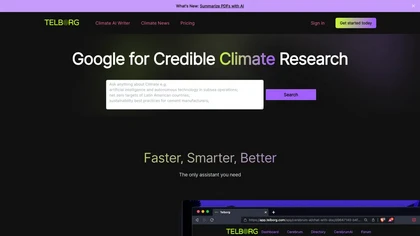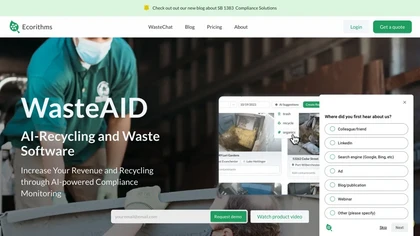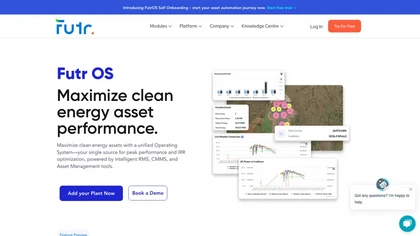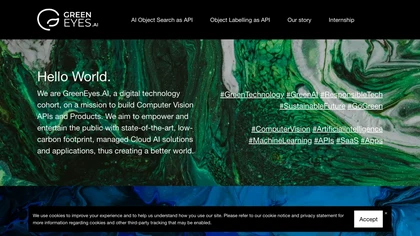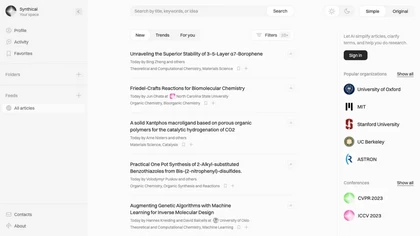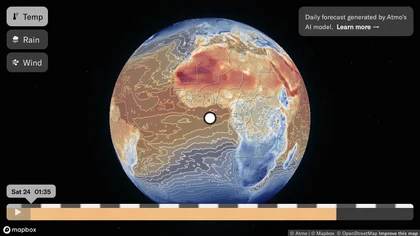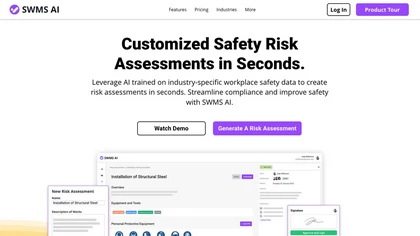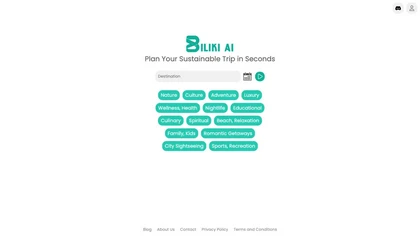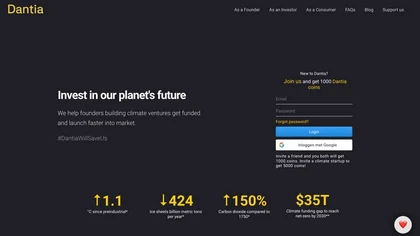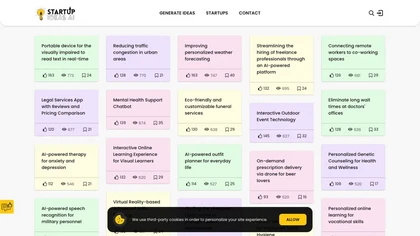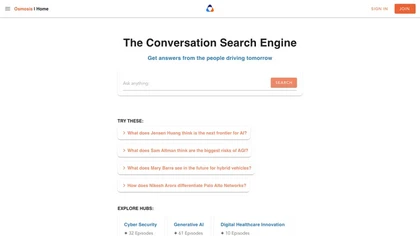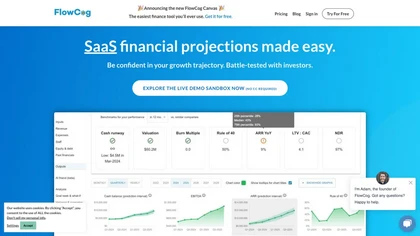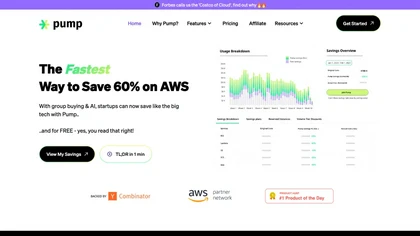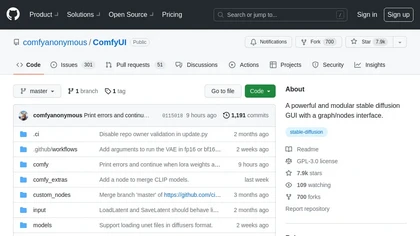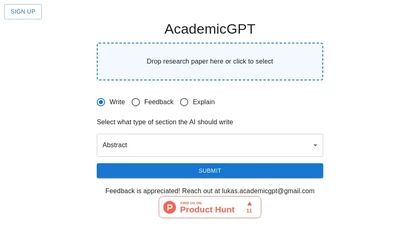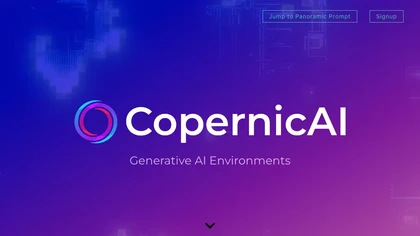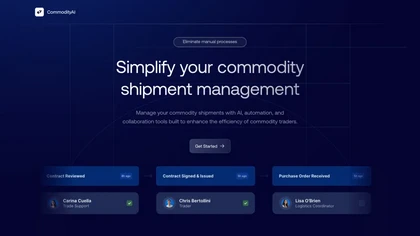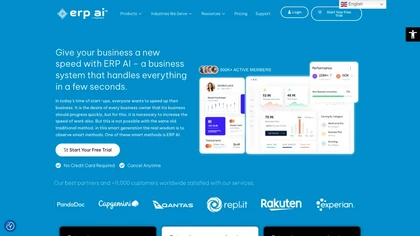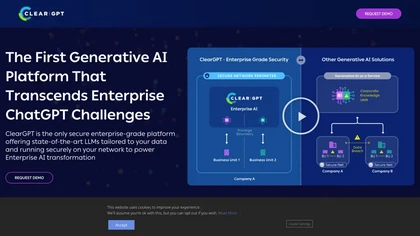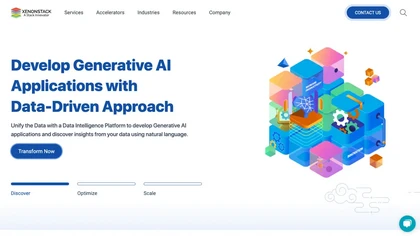AI use cases for Environmental Sustainability
Generative AI can be applied in various applications for environmental sustainability. Here are some examples to explore below for inspiration with AI tools to get you started with using AI in environmental sustainability.
🛠️ 70 AI tools for Environmental Sustainability
Explore a dynamic list of some of the most popular tools to get you started with various AI use cases and applications for Environmental Sustainability to streamline your workflows and productivity today.
Tsquare features
- Upload design sketches or 3D models
- Fine-tuning styles using AI
- Concepts to detailed designs transformation
- Easy iteration and re-editing
- Version control features
- Team work collaboration features
Telborg features
- Summarization of PDFs
- Custom knowledge base for insightful answers
- Generation of fact-filled first drafts on climate topics
- Structured and accurate inputs for presentations and reports
- Blog section for staying informed on latest climate topics
WasteAID features
- Automatic route auditing
- Integration with existing systems
- Audit over 400k generators and 1m+ pickups
- Detect overflow incidents and identify contamination
- Tracking commercial account compliance
Green Suggest features
- AI-powered upcycling suggestions
- Personalized upcycling ideas based on user preferences
- Vast database of relevant content and DIY tutorials
- Reduction of textile waste
- Promotion of eco-conscious fashion choices
FutrOS features
- Unified operating system
- Warranty management
- Digital twin technology
- Automated performance insights
- Real-time alerts
LookBook features
- Sustainable outfits
- Tailored to individual tastes
- User-friendly interface
- Virtual models
- Step-by-step guidance
Reform features
- Modular building blocks for customized solutions
- State-of-the-art multimodal AI models for logistics documentation
- Automation of data capture for various documents
- Seamless integration with universal transportation management systems (TMS) through a universal API
- Embeddable customer dashboards for real-time data insights
🔥
Create your account, save tools & get personal recommendations
Receive a weekly digest of our handpicked top tools.
Unsubscribe anytime
Proxy features
- Energy-efficient upgrades
- Carbon footprint reduction
- Utility bill savings
- Tax credits and rebates
- Energy efficiency analytics
Greenifs.ai features
- Detect greenwashing errors
- Ensure compliance with green marketing guidelines
- Check social media content for compliance with region-specific regulations
- Offer targeted corrections and recommendations
- Help avoid legal issues related to environmental laws
FolioProjects features
- AI project management assistant
- Data-rich dashboards for analysis
- Project portfolio management workflow
- Enterprise asset management life cycle support
- Predictive, prescriptive, and generative AI capabilities
Unfig features
- Automated data capture from various logistics documents
- Universal TMS integrations for seamless connectivity
- Embeddable customer dashboards for real-time data insights
- Scraping information from numerous sources for visibility into logistics data
- Streamlining logistics operations with unprecedented speed and efficiency
SeeTree_AI features
- Tree detection
- Crop protection
- Farming efficiency
- Yield optimization
- Data collection techniques
GreenEyes.AI features
- Object search API
- Object labeling API
- Fast and reliable image recognition technology
- Supports up to 80 object classes
- Scalability on demand
Synthical: Science features
- Simple searches and filters
- Organic chemistry reactions exploration
- Inverse molecular design using genetic algorithms and machine learning
- Investigation of sustainable water disinfection technologies
- Delving into photochemical reactions and solid electrolyte interphase investigations
GRAVITI Diffus
4.2GRAVITI Diffus features
- Hosted gpu coding
- Stable diffusion
- Tutorials and guides
- Community support
- Ai upscaling/up-res
- Image processing
- Deliberate chilloutmix
- Dreamshaper rpg
nOps features
- Automated AWS cost allocation
- Chargebacks and showbacks management
- Resource tagging
- Cost optimization tasks automation
- Rightsizing resources with a single click
edu720 features
- AI-powered content
- Powerful analytics
- Nanolearning capabilities
- Mobile learning capabilities
- Support for various industries
e-States features
- Fundraising tool synchronization
- Management tool simplification
- Real estate portfolio transformation
- Cutting-edge solutions
- Secure transactions
Earth.atmo features
- Daily temperature forecast
- Rain forecast
- Wind forecast
- Outdoor activity planning
- Agricultural planning
Reform features
- Modular building blocks for rapid customization
- Automated data extraction from various documents
- Seamless integration with universal TMS platforms
- Real-time visibility into logistics data
- Efficient data scraping from multiple sources
SWMS AI features
- Tailored risk assessments generation
- Customizable safety policies
- Personalized document generation
- Integration of AI assistant for safety information
- Streamlining compliance processes
Biliki AI features
- Custom itineraries generation
- Sustainable travel plans
Ever Efficient AI features
- Custom dashboard
- Recurring ideation
- Debugging and testing
- System monitoring
- Bi-weekly sprint-based development cycle
SceneXplain features
- Description
- Multilingual support
- Api integration
- Content creation
- E-commerce
Dantia features
- AI-powered investment platform
- Connects climate-focused founders with investors, advisors, and early adopters
- Offers personalized opportunities tailored to user preferences and risk appetite
- Facilitates meaningful connections and investment opportunities
- Utilizes AI-driven recommendations for informed decision-making
Saara.io features
- Focus on solving common industry challenges
- Reduce operational costs
- Analyzing customer data for personalized offers and improved shopping experience
ImagePipeline features
- Image creation
- Model training
- Image manipulation
- Background manipulation
- Artistic style creation
Startup Ideas AI features
- Wide array of startup ideas generation
- Streamlining of hiring freelance professionals
- Connecting remote workers with co-working spaces
- Suggestions for eco-friendly customizable funeral services
- Real-time text reading for the visually impaired
Osmosis features
- Search engine tool functionality
- Insightful answers generation
- Wide range of topics exploration
- Curated selection of episodes
- Knowledge tapping capabilities
PhotoSynth features
- Optimizing images for web and mobile apps
- Streamlining image management processes
- Support for popular image formats and automatic conversion
- No-code interface for managing image variations
- Automating image processing with backend systems
FlowCog features
- User-friendly Flowcog Canvas for financial projections
- AI-driven inputs for streamlined modeling process
- Support for integrations with QuickBooks and Stripe
- Detailed financial statements and saas metrics
- Simulation analysis and data visualization dashboards
GeniePM features
- Product requirements
- User stories
- Use cases
FindSD.art features
- Art style matching with diffusion models
- Single image analysis
- Fast search speed
- Free to use with no hidden fees
- Data privacy guarantee
Content Optimizor features
- AI-powered content optimization
- Analysis of factors driving traffic
- Estimation of reduction in article creation time
- Integration with Google Docs and WordPress plugin
- Free training and responsive support
Pump features
- Automated AWS savings optimization
- AI-powered algorithms for cost-effective AWS strategies
- Maximum security with limited access to user data
- Group buying for collective discounts on AWS
- Invite-based admin control for multiple AWS accounts
ComfyUI features
- Designing
- Advanced stable diffusion pipelines using graph/nodes/flowchart based interface
- Examples workflows
- Stable diffusion gui
AcademicGPT
2.6AcademicGPT features
- Generate abstracts
- Provide feedback on paper sections
- Ease writing process
- Save time
Datatruck features
- Automating manual processes
- Providing reporting analytics
- Offering actionable insights through AI/ML analytics
- Hyper automation capabilities
- Seamless data integration and real-time visibility
Free The Creator features
- Leveraging AI for firefighting technologies
- 4-year competition duration
- Prize pool of $1,000,000 to $3,500,000
- Focus on addressing the $11m xprize wildfire goal
- Platform for fostering innovative solutions in firefighting technology
Cohesive AI features
- Ai editor
- Template creation
- Seo blog generator
- Story generator
- Real-time collaboration
- Text translation
- Image translation
- Language translation
- Marketing
- Sales
- Support
- Personal use
- Fast custom support
YC Application Optimizer features
- Data integration for structured knowledge graphs
- Extraction of insights from PDFs using NLP algorithms
- Creation of easily digestible reports with customizable templates
- Aggregation of large-scale data for quick analysis
- Visualization of critical information through persuasive reports
Three Sigma features
- Advanced search technology
- Imagine assistant
- Chatgpt plugin
Mezzi features
- Personalized steps to save on capital gains taxes
- Reduce fund fees
- Optimize portfolio allocation through advanced calculators and AI-powered suggestions
- Compare performance and allocations across different accounts for easy rebalancing
- Ad-free platform prioritizing data privacy and security
Cybertiks features
- Field monitoring through satellite imagery
- Utilizes advanced AI models for analysis
- Provides accurate metrics remotely
- Integrates precise AI models trained on thousands of fields
- Utilizes sensor fusion to integrate multiple data sources
AI-Powered Innovation Toolkit features
- AI-powered tools
- Free online sessions and demos
- Innovativeness score calculation
- Articles on key innovation concepts, models, and tools
- Comprehensive suite of tools for fostering creativity and efficiency
Inventive features
- Streamline rfis, rfqs, security reviews, rfps
- Generate reliable answers with ai
- Reduce reliance on subject matter experts
- Save substantial time and effort
- Up-to-date content
Scrap.so features
- Web scraping
- Lead generation
- Market research
- Competitor analysis
- Infoproduct creation
SearchOptimizer features
- Keyword clustering
- Content idea generation
- Keyword categorization
- Improved search engine visibility
- Time-saving in keyword research
AI consulting tools features
- Generate swot analyses
- Create user personas
- Automate analysis generation
- Offer support through a support team
CopernicAI features
- Generating ai-generated 2+1d environments
- Creating ai-generated 360 panoramas and little planets
- Generating immersive 2+1d environments using panoramic images and videos
- Exploring generated environments in virtual reality using quest headsets
- Continuously improving and planning for future releases, including full 3d environments
Typo features
- Measure effort and cost spent on innovation
- Technical debt
- Roadmap
- Identify sdlc metrics that impact development efficiency
- Remove blockers in real-time
ThinkDiffusion features
- Personalized ai art
- Top-tier models
- Controlnet preloaded
- Additional virtual machines
- Creative freedom
CommodityAI features
- Automated shipment processes
- Auto-generated shipping nominations
- Real-time shipment tracking
- AI-driven performance analytics
- Smart data extraction
Faircado features
- Product search across multiple categories
- Integration into browsing experience
- Automatic search for pre-owned products
- Support for second-hand items
- Assistance in finding refurbished alternatives
MEJ ERP AI features
- Intelligent automation
- Data-driven insights
- Real-time analytics
- Predictive forecasting
- Seamless integration capabilities
E-Procure AI features
- Zero-code AI platform integration
- Recommendation of supply locations and suppliers
- Market expansion assistance
- Product opportunity identification
- Real-time exchange rate inquiries
We Are Engineer features
- Education and training focus
- Industry-level partnerships
- Insights from expert engineers
- Support for successful engineering careers
- Workshops, Q&A sessions, and competitions
ContentCal features
- Generating a content calendar
- Suggesting content ideas
- Creating a content strategy
- Early access subscription
AutoDraft features
- Generate drafts automatically
- Create unique content
- Improve efficiency
- Save time
- Enhance creativity
Automatic 1111 features
- Image generation
- Text-to-image conversion
- Diffusion model training
- Data preprocessing
- Model deployment
Gensbot
5Gensbot features
- Instant creation of personalized goods
- Generation of customized catalog based on user preferences
- Sustainability focus in AI designs
- Local production to minimize carbon emissions
- Token rewards system for unlocking future designs and exclusive offers
Servcy features
- Consolidate data from multiple tools into one central location
- Aggregated inbox to view and respond to various communications in one place
- AI support to prioritize and respond to important messages promptly
- AI capabilities for storing and managing documents as well as answering questions
- Features for tracking payments, analyzing time, merging calendars, and providing planning insights
SuperTools features
- Task management
- News updates
- Trend monitoring
- Ai tool categorization
- Productivity enhancement
ClearGPT AI features
- Tailored for enterprise environments
- Addresses security, performance, cost, and data governance limitations
- Human reinforcement feedback loop for continuous learning
- Allows users to explore, generate, analyze, and act upon predictive business information efficiently
- Enables smarter decision-making and faster innovation within enterprises
XenonStack features
- Custom software development
- Platform engineering
- Enterprise DevOps
- Data warehouse management
- IoT integration
EnergeticAI
1.6EnergeticAI features
- Embeddings
- Classification
- Question-answering
- Cold-start performance
- Small module size
Flawless AI features
- Film making
- Generative ai
- Empowering storytellers
- New tools
- Emerging technologies
VModel - AI Fashion Models features
- Generate virtual fashion models
- On-model photography
- Cut model photography costs
- Photorealistic images
- Customization

